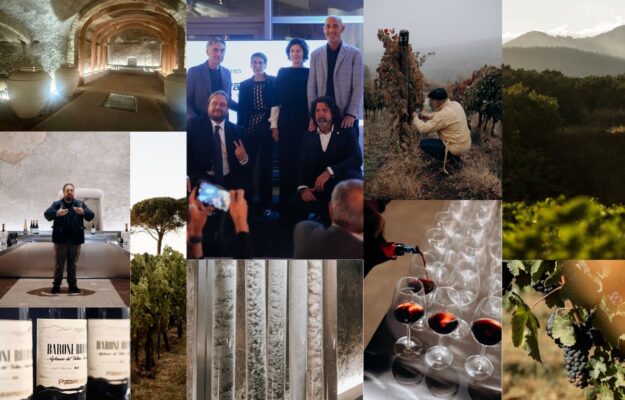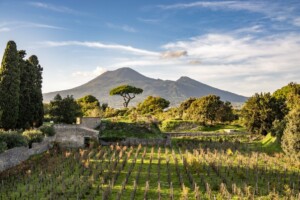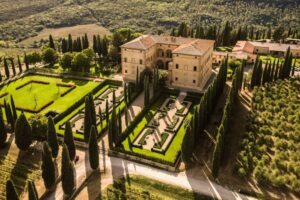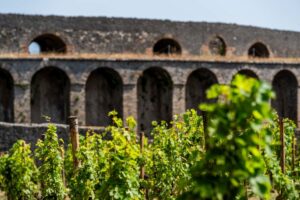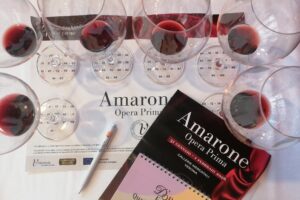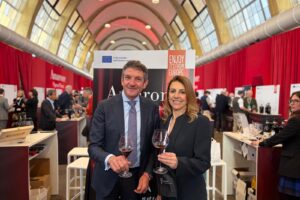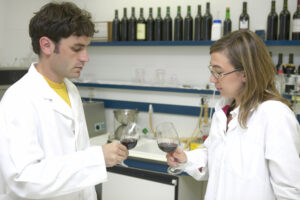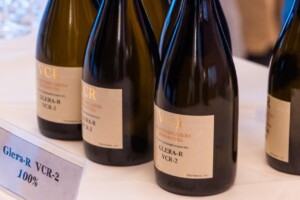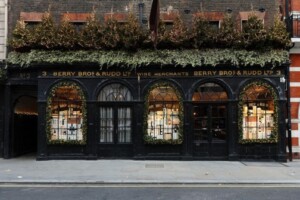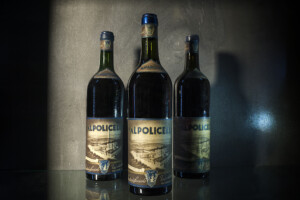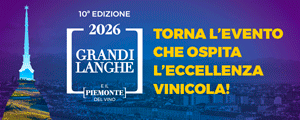History, emotion, tradition, and courage: these are the values of a family that have marked the first 100 years of Paternoster, the Lucanian winery that was the first to bring Aglianico del Vulture to prominence and recognition by wine critics. A century of history and vineyards on the lava flows of Mount Vulture, which has now found another family - curiously in its fourth generation as the other- to continue its journey: Tommasi Family Estates, an iconic company from Valpolicella and now among the most important wine groups in Italy (with over 800 hectares of vineyards across seven Italian regions and a 2024 turnover of 31.9 million euros), acquired the winery in Barile (Potenza) in 2016, continuing a project which began in 1987, when it started investing in Italy’s most important wine regions beyond its native territory. Under Tommasi leadership, Paternoster’s journey has been enriched by the “Cantina del Barone Rotondo” project and the new wine “Barone Rotondo”, a tribute to the tradition and future of Aglianico, presented in recent days during the centennial celebrations of Paternoster. “The Paternoster family has made this volcanic territory great through 100 years of passion for a great wine, Aglianico del Vulture - underlined Giancarlo Tommasi, winemaker and technical director of Tommasi Family Estates - we are honored to be part of this story since 2016. We believe in Vulture and in this grape variety, which has not yet received full recognition for its value, but I am confident that with ongoing projects and investments, and with the will to collaborate with other local players, we will bring Aglianico to the level it deserves”. By the way, Mount Vulture is an ancient, imposing extinct volcano which dominates the landscape of northern Basilicata, the epicenter of a rich ecosystem of flora, fauna, and history, as evidenced by the presence of a rare living fossil, the Bramea di Hartig butterfly, and its connection to the Aglianico vine. In its crater, the Monticchio Lakes lie, two bodies of water at the heart of the protected natural area of the Vulture Park. “This centennial - affirmed winemaker Fabio Mecca Paternoster - is a milestone I feel deeply personal, but it is also a starting point. Paternoster is the story of a land and a family that believed in Vulture when no one else did. A hundred years ago, a courageous and visionary man, my great-grandfather Anselmo Paternoster, had the ability to turn hardship into a dream. With no news of his father who had emigrated to America, he began producing wine on a small plot of land and had the foresight in 1925 to write the company name and origin on the label. Later, his son Giuseppe, after studying in Conegliano, transformed the company by focusing on sparkling wine, using well water refrigeration and autoclaves, producing 50-60,000 bottles of Moscato and Malvasia-based sparkling wine between the 1970s and 1990s, making the winery a reference point for the category. It was the generation of the sons of “Pino”, third generation headed by Vito Paternoster, that focused on Aglianico, abandoning chestnut wood, abundant in Vulture, in favor of Slavonian oak, bringing the wine to prominence and building the new winery in 2003, which became operational in 2006, replacing the original one in the town of Barile. Today, we celebrate the past while looking ahead, with the same pioneering spirit of my great-grandfather Anselmo, but with new tools and ideas”.
“The centennial of Paternoster - added Giancarlo Tommasi - perfectly represents our family philosophy and company vision: to enhance unique and authentic territories by providing expertise, research, and investment to build the future. Vulture has extraordinary potential, and Paternoster will continue to be its benchmark. The Cantina del Barone Rotondo project and the new hospitality center were created precisely to continue telling the story of Vulture to the world”. Alongside the historic labels, all made from 100% Aglianico grapes - Superiore DOCG Don Anselmo, a cult wine of Lucanian viticulture with its first vintage in 1985, a tribute by Pino Paternoster to his father Anselmo, founder of the winery, and Synthesi, the DOC with the highest production numbers - the Barone Rotondo comes, deriving from the 2020 harvest (to be released in the coming months), an evolution of the existing Rotondo, the Superiore DOCG launched in 1996, which received the “Tre Bicchieri” award in 2002 for the 1998 vintage, the first recognition in the Gambero Rosso guide (then, still in collaboration with Slow Food, ed), and the first time Paternoster used small barrels, following the wine trends of the time. In the new label - still produced from grapes grown in historic vineyards at 600 meters altitude near the Villa del Barone Rotondo, from which it takes its name - tonneaux replace barriques to moderate the wood influence, with a longer aging process. The winemaking project is evolving: starting from the next harvest, after 24 months in wood, aging will also include amphorae as an alternative or complement to steel, aiming for a finer, more vertical and mineral profile to make Barone Rotondo more approachable. This rare wine was produced in only 2,500 bottles in 2020 and may reach a maximum of 6,000 in future vintages.
Aglianico del Vulture is a bold, complex red wine. Its tannic richness requires long aging, and its austerity makes it less immediate for inexperienced palates. Therefore, bringing it to market, especially international markets where Tommasi exports heavily, is a challenge, and the organoleptic profile of the new label - which is priced at twice that of the other Superiore DOCG, Don Anselmo - should help. Recent projects aim to enhance both the wines and the territory: the renovation of the Paternoster headquarters - to boost hospitality and local wine tourism, attracting visitors from Matera and Puglia, and transforming Vulture into a trendy destination in Southern Italy’s wine tourism scene - and the Cantina del Barone Rotondo, a splendid restoration of an ancient snow cellar carved into volcanic rock, dating back to around 1476, whose existence was known only through oral tradition from father to son. This underground snow cellar, made up of several cisterns, will welcome visitors and house the Aglianico Vault, 20 meters underground, where Barone Rotondo bottles will be stored at a constant temperature. The excellent work of architects Antonio and Stefania Schiró - from the Schiró Architecture Studio in Rionero in Vulture - along with Egidio Cutillo, preserved the structure of the hypogeal caves - where the alternating layers of ash, lapilli, and lava are visible on the walls - while integrating functional contemporary elements for tastings. These are powerful tools in Paternoster’s marketing and communication strategy, alongside the quality of the wines, but more is needed to make this important Lucanian red known and appreciated abroad.
“To bring Aglianico del Vulture to international markets - confided Giancarlo Tommasi to Winenews - we are considering a synergy between our Etna wines and those from Vulture, under the common theme of volcanoes, a fascinating element that characterizes great wines”. This is a promising strategy, given the current high reputation of Mountain Wines, with Ammura being one of the eight Tommasi family estates spread across seven regions: Tommasi in Veneto, Tenuta di Caseo in Lombardy, Casisano in Montalcino, Poggio al Tufo in Maremma Tuscany, Masseria Surani in Puglia (to which, Cantine Moros and Tenute Eméra recently joined), Paternoster in Basilicata, a project in Orvieto (Umbria), and partnerships in Chianti Classico with La Massa and in Friuli-Venezia Giulia, in Collio, with Marco Felluga Russiz Superiore. The De Buris cultural and winemaking project, linked to the Valpolicella Classica area, focused on restoring of Villa De Buris and producing the namesake Amarone Classico DOCG Riserva and Valpolicella Classico Superiore DOC, completes the framework. “This last project, which somehow - observed Giancarlo Tommasi - has some points of contact with the Paternoster Cantina del Barone Rotondo project, with the restoration of the snow cellar and the development of the namesake wine in Basilicata”. The renewal of the Lucanian winery also involves digital innovation and community engagement, with many events dedicated to partners and the wine community, starting with an Open Day on November, 8th, a tribute to the history of a winery that has carried the volcanic soul of Basilicata around the world for a hundred years.
Copyright © 2000/2026
Contatti: info@winenews.it
Seguici anche su Twitter: @WineNewsIt
Seguici anche su Facebook: @winenewsit
Questo articolo è tratto dall'archivio di WineNews - Tutti i diritti riservati - Copyright © 2000/2026










